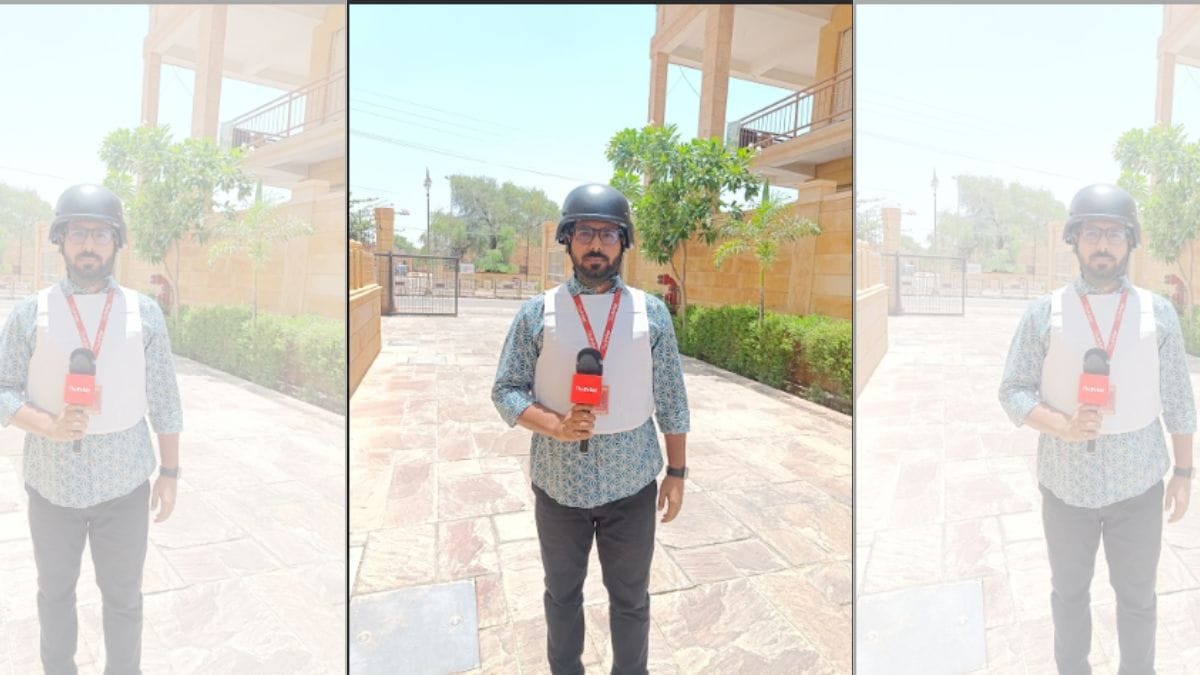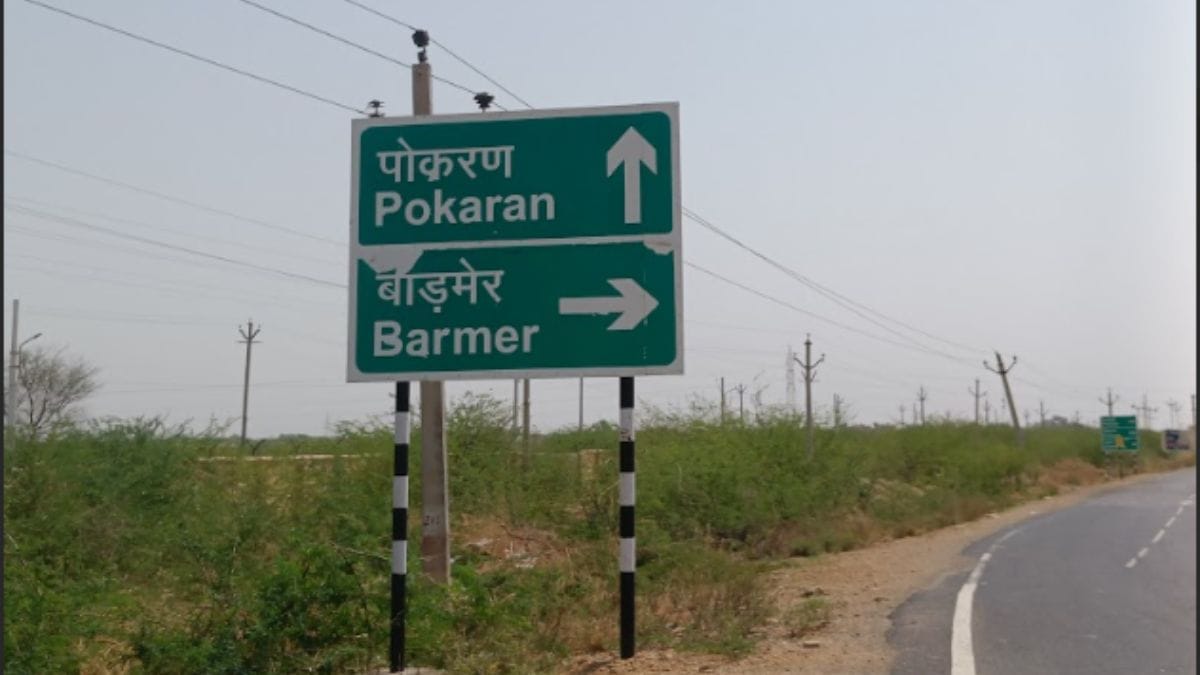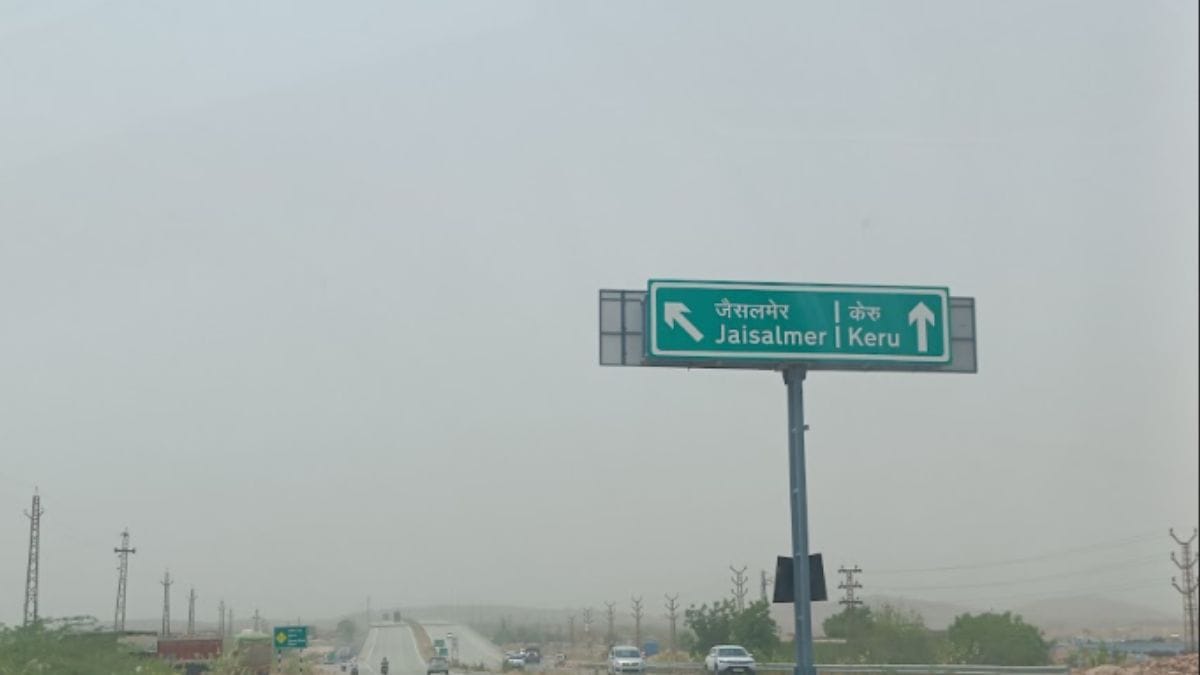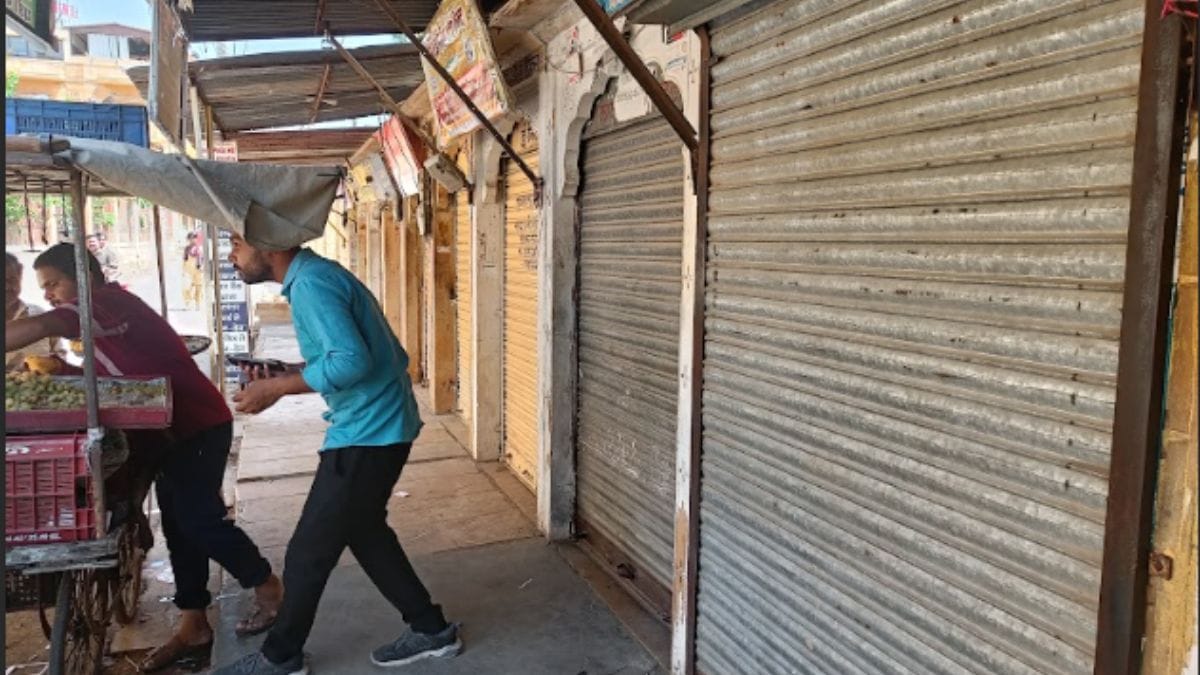Jaisalmer: It was 2:36 in the afternoon on 8 May when I received a text from my editor: ‘Go to Jodhpur, immediately’. At first, I couldn’t grasp the urgency, but within minutes, it became clear—the assignment to cover the border districts of Rajasthan amid escalating India-Pakistan tension. Departure was certain, not the return date.
Pakistan was persistently attacking India’s border states, and India was responding in equal measure. I had no experience reporting from the border. I had only read and heard stories of the India-Pakistan wars in 1965, 1971, and then Kargil.
There was fear inside, but also excitement—this was a once-in-a-lifetime experience. It felt like a challenge, and I was ready to take it on.

India’s National Security Adviser Ajit Doval once said that every man senses danger, but there’s a timing to it: some sense it before the incident, some during, and some after. “I belong to the third category. When everything is over and we come back home and light a cigarette, then we think (about) what could have happened,” he had said.
To borrow Doval’s words, I belong to the third category. Now, as I write about my three days in Jaisalmer—where multiple drone attacks and even projectiles fell—those days on the ground seem like weeks. Now, I feel anything could have happened. But during that time, I had to report what I saw on the ground—the preparations by the district administration and the Rajasthan government to check Pakistan’s threats.
It wasn’t easy, especially when the sound of drones loomed large amid a complete blackout in the desert city just 100 km from the Pakistan border. The last time the Jaisalmer region witnessed conflict was in 1971, during the famous Battle of Longewala, fought near the border and spearheaded by Major Kuldip Singh Chandpuri.
Also Read: Fleeing shells to a terrifying night in a basement in ‘safe’ Surankote—my experience covering Poonch
Journey to the desert city—Jaiselmer
My journey to the desert city began at Old Delhi Railway Station. My train was at 9:20 pm, and until 9:03 pm, I was in my office at ITO, collecting bulletproof jackets and a helmet. I rushed to the station on a bike and reached there at 9:18 pm. As I arrived at the platform, the train had started moving. I ran as fast as I could, threw my luggage aboard, and boarded the moving train. This was the beginning of an adventurous journey to the border.
When I reached Jodhpur on Friday morning, there was an eerie silence in the city. As the city awoke after the blackout all night, worry lined people’s faces. But Jodhpur was still relatively safe. So I headed towards Jaisalmer, about 280 km away, where Pakistani-origin drones were reportedly crossing into Indian territory near Rajasthan’s border. Debris from drones had fallen at multiple locations. Fortunately, there were no casualties.
On the way from Jodhpur to Jaisalmer, I passed through Pokhran, where India conducted nuclear tests in 1974 and 1998. En route, two songs motivated me: ‘Manzar Hai Yeh Naya’ and ‘Badhte Chalo’ from the film, ‘Sam Manekshaw’. People were closing shops because Pokhran was being targeted by Pakistani drones at night. It was 4 pm, and locals reported hearing drones overhead in nearby areas during the night.

But the people of Pokhran were not afraid. Rawal Ram Parihar, a local resident, told me that India had become self-reliant in terms of nuclear weapons on the land of Pokhran. “The people of this land are not the ones to be afraid,” he said, with pride while shutting his automobile parts shop.
At 7 pm, I reached Jaisalmer. The entire city was immersed in darkness, and police were checking every vehicle entering. Only moonlight illuminated the city; the rest awaited the night to pass. Jaisalmer had always been on my travel list, but I never thought I would go there under such circumstances.

The last time I saw such desolation in any Indian city was during the lockdown. Shops were shut, lights were off—the only hope in the darkness was the full moonlight in Jaisalmer’s sky. As the night deepened, Pakistani drones started hovering over Jaisalmer again, but India’s air defence system destroyed them, with remains falling in many villages.

Morning attacks, ceasefire & reflections
Pakistani-origin drones were detected over Jaisalmer and Barmer, with Indian air defence systems responding to neutralise them. Debris from drones and projectiles fell in many villages. A projectile landed near a house in a dhani of Baroda village, about 35 km from Jaisalmer city. The person sleeping there narrowly escaped, but a large crater formed nearby. Police and the Army were informed, and they sent the debris for investigation.
Throughout the day, villagers shared their stories with the media, enthusiastically condemning Pakistan. An interesting incident occurred after a ceasefire agreement was reached between India and Pakistan. All the markets in Jaisalmer opened immediately. Tea started boiling at tea shops, and hundreds of people shouted slogans of ‘Bharat Mata Ki Jai’ and ‘Vande Mataram’. But this happiness faded within hours when news of ceasefire violations emerged in the evening. The entire city once again went into blackout, and people’s homes were engulfed in darkness
In those dark nights and exhausting days in Jaisalmer’s scorching heat, the only thing that brought a smile and motivated me was my editor’s message citing former Anmerican ambassador Bob Blackwill: “Hang on to your tough times. Because tomorrow they will be your good old days.”
Now, as I write this from Delhi, those three days truly feel like the good old days—tough, full of fatigue, but unforgettable and always close to my heart. Here, I am reminded of poet Shivmangal Singh Suman’s lines, often cited by Atal Bihari Vajpayee: ‘Kartavya path par jo bhi mila, ye bhi sahi, vo bhi sahi (Whatever I got on the path of duty, this is right, that too is right).’
(Edited by Radifah Kabir)

